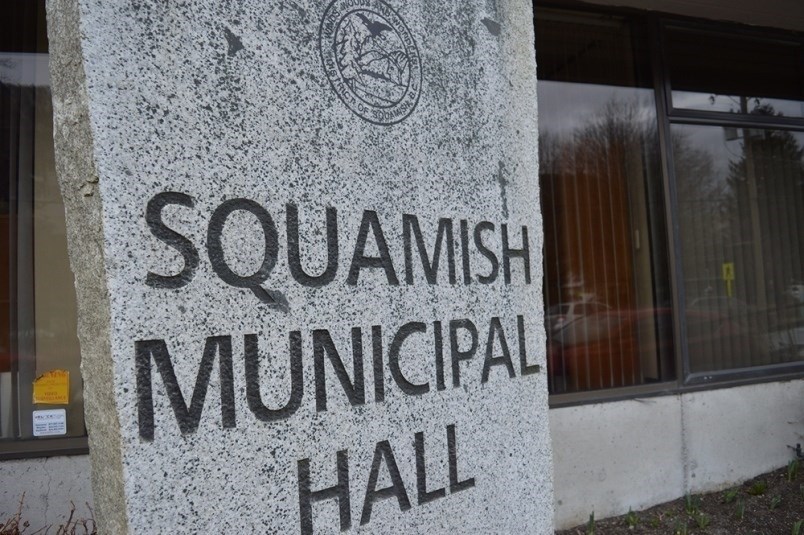During an unprecedented local building boom, why are two mega projects that have been on the District’s radar for the better part of a decade still languishing in limbo?
Both the Cheekeye Neighbourhood Plan in Brackendale and the Cheema lands, officially referred to as District lots 509 and 510 in the Garibaldi Highlands, appear to have plenty of upside.
According to the company’s website, the Cheekeye bid is presented by Sqomish Sea to Sky Developments LP, a partnership between Squamish Nation (Sḵwx̱wú7mesh Úxwumixw) and Squamish Cornerstone Developments LP. Billed as an “inclusive ride-in, ride-out community,” it will add 1,215 units to the local housing supply, including 537 single-family residences and 678 multi-unit dwellings.
The proponents claim, “The project is a win for all involved. It will be a catalyst for bringing Squamish to the forefront and creating a world-class community born out of a longstanding strategic and prosperous partnership.”
Developer Bob Cheema’s proposal consists of a mixture of social housing, senior housing, affordable rental housing, so-called “missing-middle-housing,” employment lands and neighbourhood commercial spaces. In a company marketing brochure, it is described as “a unique mountain biking focused, lifestyle community…with a ‘bike-to/bike-from’ neighbourhood.”
Four years ago, in a letter to the editor of The Squamish Chief, Cheema said the development “would provide the city with the opportunity for economic growth in the millions, the creation of hundreds of new local jobs, and the growth of small local businesses.”
But the District’s growth management boundary policy continues to stymie the plan.
According to Coun. Doug Race, that restriction was devised to direct new housing and development to designated infill areas before spreading into the surrounding green space.
In his estimation, giving the Cheema venture the green light is not warranted with all the new developments ready to flood the market in the next few years.
“So, absent a significant need or significant community benefit, there is no need to develop those lands now,” he said.
Coun. John French recognizes the arrangement will incur expensive road, water, and sewer system expansions. However, he believes “an opportunity exists to work with the developer to make the best possible use of that infrastructure by having an understanding from the start that early development will include dense housing designs.”
He also supports bringing the property inside the growth management boundary because it is completely out of the floodplain in the lower valley.
During a recent council meeting, the proposal was rebuffed for the third time in four years after a staff report declared that specific policy work related to the project was incomplete. In a close 4 to 3 tally, Mayor Karen Elliott, along with councillors Chris Pettingill, Jenna Stoner, and Race, voted against first reading, while councillors Eric Andersen, French and Armand Hurford were in favour. In a dissenting response to that decision, a Cheema family spokesperson stated the real reason for council’s persistent refusal to advance the project was based on the District’s agenda “to maintain their leverage to hold us at ransom.”
Meanwhile, the Cheekeye option remains on hold until an extensive list of conditions linked to a protective debris hazard barrier are met by the project’s backers. Ultimately, according to the District’s planning department, once the work is completed, it will be up to the proponents to construct the barrier before receiving building permit approvals.
A detailed engineering feasibility study related to that structure was presented in 2015. Last year, designers highlighted the latest iteration consisting of a 25-metre-high concrete barrier with a six-metre-wide outlet for water flow from the Cheekye River. But the venture could still be years away from the spades in the ground stage.
Coun. Hurford said although he would like to see the plan move faster, he realizes that “large, complex, technical projects take vast amounts of time to accomplish…unfortunately, it’s unlikely much can be done to speed up the process.”
Former Squamish mayor, Patricia Heintzman, lauded District planners for erring on the side of caution because a failed project could bankrupt the town.
“If the province took on some responsibility for the potential financing into the future, then this would be an easier decision for the District,” she said.
So, all things considered, although the Cheema and Cheekeye proposals have considerable potential, several major obstacles prevent both from moving closer to a launch date. In the interim, the protracted cat and mouse game between the proponents and the District of Squamish continues.
Helmut Manzl is a long-time Squamish resident and 17-year political commentator for The Squamish.




